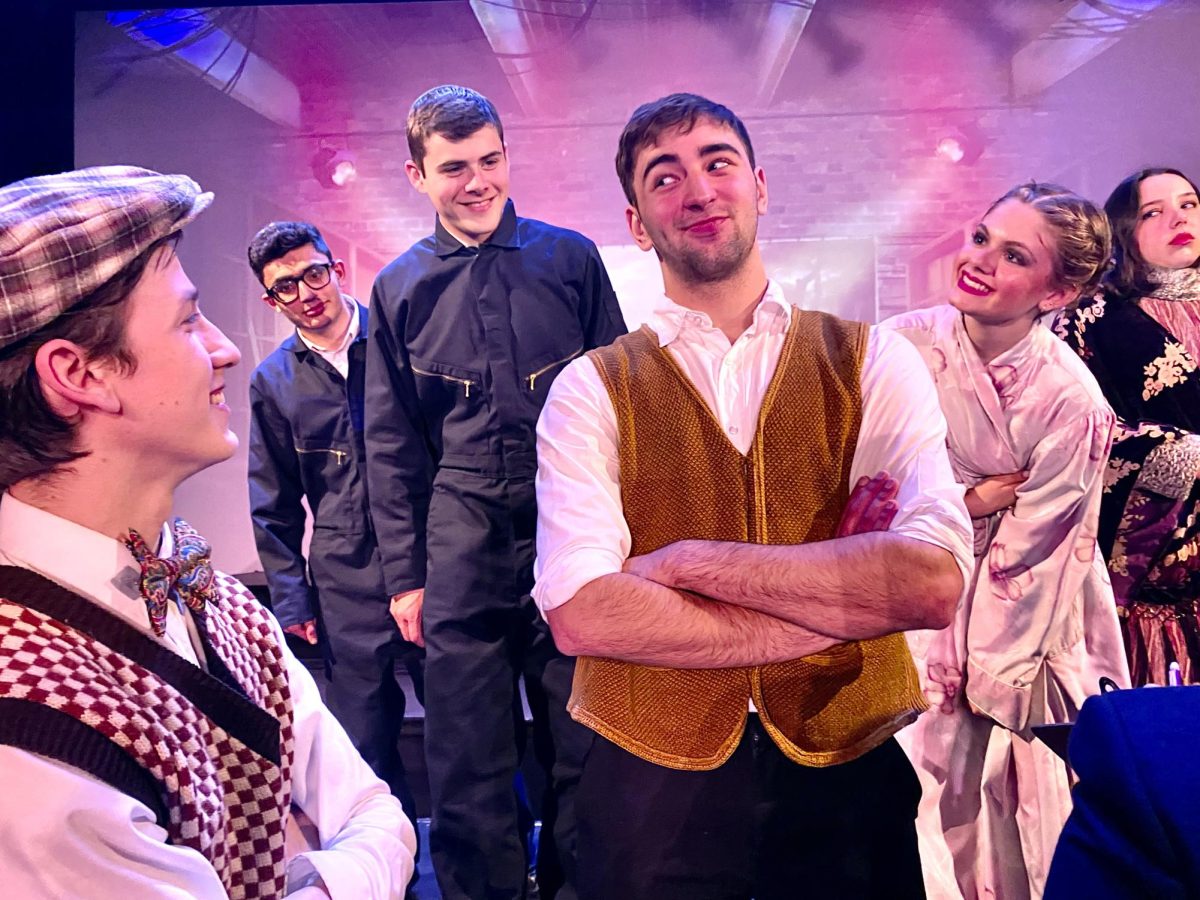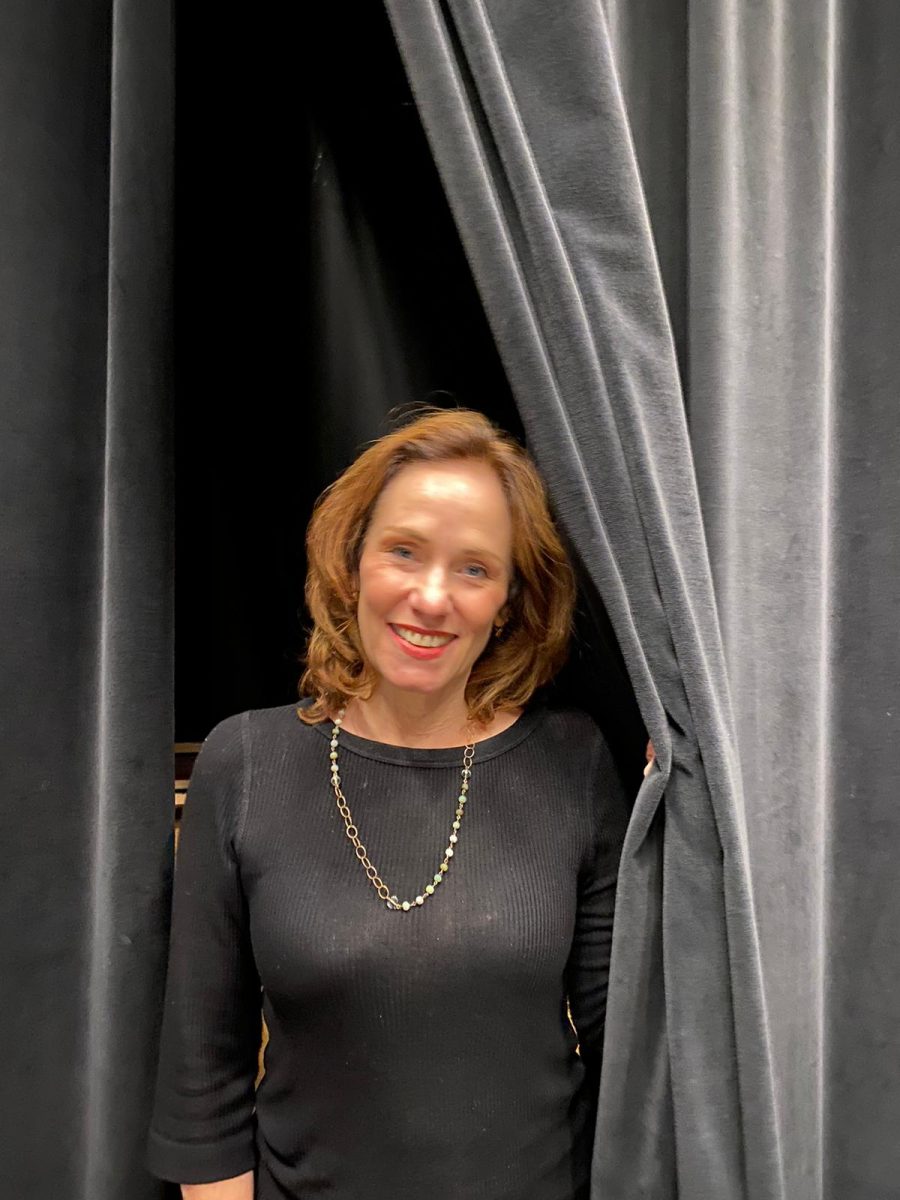Pride and Prejudice, the latest Shalhevet production, is an adaptation of Jane Austen’s beloved novel and a very ambitious undertaking for the drama department. The book itself is fairly lengthy and full of distinct characters arranged to highlight the mores of English landed gentry. Plot and subplots are carefully revealed on every page.
The play however, must confine the bucolic English countryside to a bare stage with moveable furniture. It simplifies the characters, and tries to tie the complex plot and subplots together neatly in two acts.
That means a cast of 17 high school actors had to convey as much complexity and subtlety as possible in every move and inflection, hoping that a three-dimensional picture would be worth the many thousands of Austen’s missing words. In six performances Dec. 14 – 20, Shalhevet’s actors did this well enough that the plot lines were clear and some of the characters were truly memorable.
Most of the cast not only acted but also danced what seemed like genteel 19th-century line dances. The costumes were perfectly fine for the period play. As an aside, the costumes can even be recycled if the drama department chooses to perform Margaret Mitchell’s Gone With the Wind adaptation for the stage.
And the play was an excellent vehicle for actors to showcase their talents. The characters of Mr. Darcy and Miss Elizabeth Bennet were in the capable hands of freshman David Lorell and junior Rachel Friedman – both new to Shalhevet Drama. Without overdoing it, Rachel managed to coax out every bit of Lizzie Bennet’s strong will, while David’s portrayal of the aloof Mr. Darcy was on point. Given the boundaries of tzniut (modesty), the pair managed to believably develop the “love connection” that evolves gradually through the plot of the play.
Leah Glouberman, Naomi Abehsera, Rose Bern and Brianna Marshak brought out their individual characters’ hilarity to perfection. These actresses fully inhabited the roles of the meddling and overzealous matchmaking mother, the snooty rich girl, the youngest sister who marries first, and of course the society matron from hell. The audience, full of the casts’ family and friends, seemed to revel in their comedic deliveries.
Maya Ben-Shushan, a sophomore, was masterful as bookish sister Mary Bennet. Annie Asch, also a sophomore, played the fourth Bennet sister with equal aplomb. Danny Silberstein, dressed in what seemed like Hugh Hefner’s silk loungewear, mastered the part of Mr. Bennet, the beleaguered yet unbowed family man living with six women.
Noteworthy performances were given as well by Leona Fallas, a senior who played eldest Bennet sister Jane, and Paul Merritt who played her love interest Mr. Bingley. Their locked eyes in the first act provided some vivid chemistry as the plot got under way.
Additional characters were played by Rachel Kenner, Leah Katz and Rina Katzovitz, in various supporting roles including that of a Bennet uncle, a Bennet suitor, and Mr. Darcy’s sister, respectively. All were imperative to the plot. These actors understood their importance and filled their roles well, as did Talia Rotenberg, who likewise played several roles. Alumnus Emilio Lari ‘11 came back to fill the role of a military officer who runs off with Rose Bern’s character, projecting suitable sleeze.
Ms. Emily Chase, the Drama Department Chair, did a top-notch job of directing the production. Most of the cast was able to stick to the upper-crust dialect for the duration of the play. But some lines were delivered in a garbled fashion, and at least one actor completely missed the accent, sounding more like someone from the antebellum South than 19th-century England. This raised the question of whether the tradeoff was worth it; the play could as easily have been performed in American English.
There were also problems with the blocking. From the fifth row of the left side, fourth seat from the aisle, nothing was visible that was staged in the front on the far right of the stage (from the actors’ perspective). There were quite a few scenes that I was able to hear but could not see. This type of oversight is rather surprising because it has never happened before; perhaps it was an opening night glitch.







